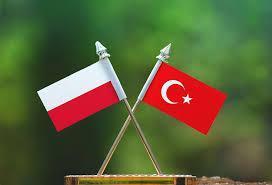
Turkey and Poland have a lot in common. We celebrated the 600th anniversary of establishing diplomatic relations in 2014. Few countries in the world can boast about such a tradition.
Every Polish child knows that Turkey was the only country in the world that did not recognize the partition of Poland in 1795. We also remember that in difficult times, the hospitable Turkey gave shelter to Polish immigrants.
Interestingly, Turkey also did not recognize the partition of Poland in 1939, and the Polish ambassador could remain in office at Atatürk Boulevard 241 in Ankara until the end of the war.
The Partition of Poland in 1939?
In Moscow, on Aug. 23, 1939, the Third Reich and the USSR concluded the so-called Molotov-Ribbentrop Pact. Formally, it was a non-aggression agreement. It contained, however, a secret protocol to divide Poland, Lithuania, Latvia, Estonia, Finland and Romania, between these two criminal accomplices.
On Sept. 1, Adolf Hitler invaded Poland. Everyone knows that. World leaders gathered in Poland recently to commemorate the 80th anniversary of the beginning of World War II, with Turkish Vice President Fuat Oktay among them.
But not everyone knows that Joseph Stalin invaded Poland just a few days after Hitler, on Sept. 17. Not everyone knows – or not everyone wants to know – that 80 years ago, my country fell victim to a concentrated attack by the two most powerful armies in the world, the two most aggressive and inhuman regimes.
The military parade of Wehrmacht and the Red Army in Brest was a symbolic crowning of this vicious complicity. Yes, Sept. 22, 1939, Hitler and Stalin’s allied forces were marching side-by-side to celebrate the brotherhood of arms and common victory over Poland.
Whenever I told this story in various parts of the world, people reacted with rather modest interest and even disbelief. Indeed, the Nazi-Soviet alliance in 1939-41 is an embarrassment for many. People could not understand why the Poles were so obsessed with the fear of being dismembered.
Yet to my surprise, in Turkey, I met a keen response. At first, I did not know why my Turkish friends have been so interested in the story of some secret protocol, drawing spheres of influence and the conspiracy of imperialistic superpowers to cut a weakened neighbor into pieces. Now I know.
Turks and Poles have a lot in common. Even some historical mentality.
Robert Rokicki is the charge d’affaires of the Embassy of the Republic of Poland in Ankara.